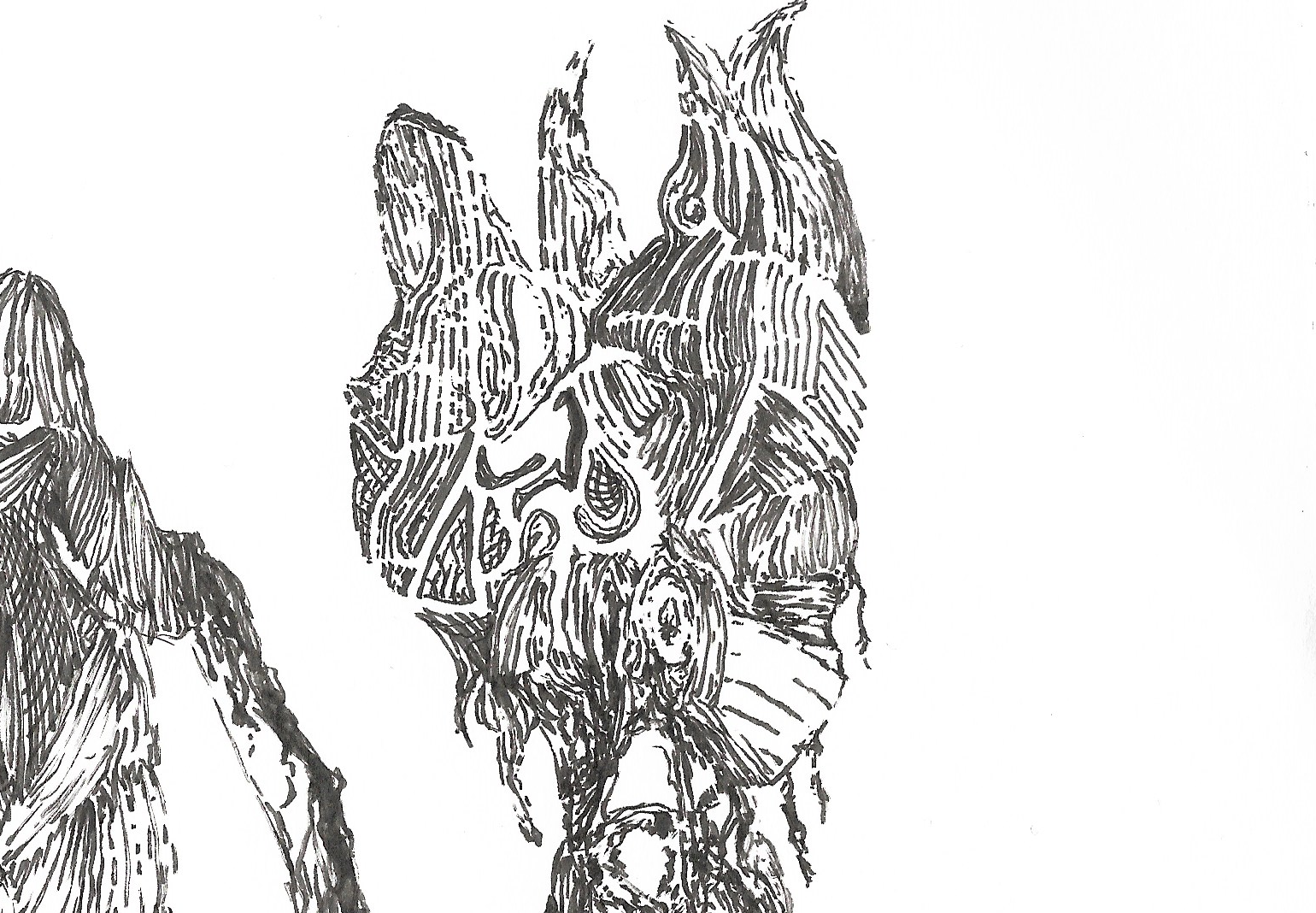I keep hearing from people in my life that spirituality is an essential part of living a meaningful existence. I hear the phrase “let go and let God” and “everything happens for a reason” used a lot as advice and comfort. However, I’m an atheist and a materialist. I don’t know how I could even be spiritual with those beliefs. At the same time, my life is not fulfilling despite the fact that I am not struggling financially. Moreover, I feel paralyzed when I try to get off my privileged ass and do even the bare minimum for socialist organizing because I realize that it goes directly against my labor aristocratic class interests. I feel like knowing that sticking my neck out and contributing to the real movement to change the present state of things is the morally correct thing to do isn’t enough to drive me.
In short, what is spirituality? Is it compatible with materialism? If so, how? And if spirituality is the wrong tree to bark up, how can I drive myself to do what is to be done?
Spirituality is coping with the everyday mundanity of your life and then pretending it’s something more than that
Spirituality is 8 hour long YouTube video essays about Lost.
deleted by creator
Sadly the weed thing’s not a good option for me considering I’m trying to put it down after being a multiple times a day toker where I reached a point I couldn’t even feel it anymore. I will have to examine my beliefs though. I have a habit of being self-critical in a way that is self-flagellating instead of constructive. I think an inability to feel positive feelings has also warped my worldview into a self-defeating one even when I know intellectually I can change.
For me, it’s kind of like love. Can love be reduced to purely biochemical processes? Of course. But we interact with it as a meaningful thing, informed through superstructural social relationships. Spirituality is a similar phenomenon, where the underlying processes are biochemical and informed by our evolutionary history, but play an important role in our psychology and lived experience. Getting more detailed than that gets tricky, because the language we use to describe it is socially constructed and shaped by the forces of historical materialism in complex ways
That makes sense to me. While I’ve not experienced love or spirituality, I can see how the capitalist superstructure corrupts those concepts in a way that both cheapens them and makes them harder to find.
You haven’t experienced love?

I have family members who love me and I appreciate them, but I can’t really feel the emotion.
Moreover, I feel paralyzed when I try to get off my privileged ass and do even the bare minimum for socialist organizing because I realize that it goes directly against my labor aristocratic class interests. I feel like knowing that sticking my neck out and contributing to the real movement to change the present state of things is the morally correct thing to do isn’t enough to drive me.
Being generous in how I interpret this, I think probably getting to know poorer people might help. Even just researching testimonies about the suffering they go through in various aspects of life should stir something.
It sounds more like an executive functioning issue than a moral one from how you phrase it.
It sounds more like an executive functioning issue than a moral one from how you phrase it.
That is probably it. I think a very difficult to treat depression has taken the wind out of my sails to a point where it’s hard for me to be motivated co do anything I’m not already in the habit of doing.
I didn’t want to presume, it just sounded very familiar. There are lots of resources online for executive functioning problems, though. My biggest piece of advice is to try to break things down into the most minute steps possible. Your goal shouldn’t be jumping out onto the streets and punching cops at protests, it should be just, looking up what’s in your area and reading about them, for example, and when you’ve done that, set a new goal (e.g. maybe write one of them an email).
This video might be a jumping off point (the entire channel is good, and some of his other videos touch on this). It’s a primer on atheism and how it’s a funky label, and defines some atheistic spiritual practices therein, and why they are still academically atheistic.
https://www.youtube.com/watch?v=AfcwTiOGnig
I personally have found meditation, mindfulness, and a lot of activities that induce altered states used in mystic practices to be immensely rewarding to cultivate, and I feel like being atheistic and materialist is likely to prime you to shut off those avenues, but they cultivate control over your interior experience like nothing else, and a materialist should be able to slot that into their ontology just fine.
I found a YouTube link in your comment. Here are links to the same video on alternative frontends that protect your privacy:
Imo, it’s really just how you frame and relate to your experience of existence. I’m a Buddhist. I’m not really strongly attached to my view with regard to the supernatural, you could say that it’s quite agnostic. Nonetheless, I found the teachings of Buddhism to make a lot of sense, and they helped me frame and relate to my existence in a way that I think is healthier than my previous framing, which was more of a purely philosophical material nihilism (which, itself, I found to be a healthier viewpoint than Christianity). I’m not saying be a Buddhist, that’s not the point. The point is that when I recognized that my beliefs weren’t helpful, I took the time to make peace with it, re-evaluate my position, and look for something that made more sense. If you think you could benefit from philosophy shopping, then make peace with the fact that your beliefs aren’t helping, and come to it with an open mind. If you find something that helps, it’s not stupid.
I admittedly never went through the “let me look at all these different world religions and see what resonates with me” stage during my deconversion from Catholacism that many go through. Hell, I never even read the bible from start to finish. I should investigate these things.
Spirituality really simply is just a self affirming itself. Thats it. When you take spiritual damage it means somebody or something is damaging ur ability to affirm that you deserve to be here.
Also stop intellectualizing ur demobilization and just do something. You dont even have enough praxis to make claims like “realizing something goes against ur labor aristocratic class interest”. You will seeiously feel better by organizing and learning to affirm the self by contributing to something without expecting a direct benefit.
I was once described as a “spiritual athiest” for believing in a connection between myself and the universe around me. As I move through life I take and I give or, if you prefer, I am influenced from and I am influence by the world around me. While I am alive I have some choice in how to shape those interactions. When I die, the last of me is released from this consciousness and returned to the universe. All without any form of supreme being.
The only “higher power” I believe in is the ineffable rules that ties the universe together, and those rules don’t care about me as an individual. I act and the rules respond, void of any conscious thought.
That type of thinking doesn’t really drive or motivate me beyond informing my decions in choosing a path to a destination or deciding that a destination is not worth the journey.
If you are not driven or motivated to continue your pusuits then it might be time to move on to something else. You tried something and it is not right for you at this time. Learn and grow from the experience to help find future interests. Maybe you come back to it later or maybe you don’t.
We exist for such a brief moment and, in the end, it doesn’t really matter to the universe what we do so uou might as well spend your time trying to focus on what makes your journey the best one for you.
The most convincing description of spirituality I ever read was that “it’s how you see yourself in connection with your world, in abstract”.
There is a big pitfall of essentialism/determinism in the attitude that “everything happens for a [coherent] reason”, and it’s hard to get people over that.
As you mentioned, the idea that ‘everything happens for a reason’ often leans too heavily into essentialism or determinism, suggesting a coherent, purposeful order to events. However, determinism, particularly from a materialistic viewpoint, just means things unfold due to prior causes, without any inherent purpose or supernatural reason.
In my opinion, the universe is vast, complex, and abstract enough as it is. We don’t need to resort to the supernatural to feel awe or forge a deep, meaningful connection with it. Simply embracing the mystery and beauty of the natural world can be profoundly spiritual in its own right.
I think the essentialism in it all is a big reason why I get so turned off from it. I’m also pretty disconnected from the world, so that’s probably a big part of the problem.
Spirituality in the atheistic sense is just how you process of the objective meaninglessness and ephemerality of your existence and everything you create. Different atheistic responses to this range from nihilism to existentialism to enmeshing yourself in a collective project to build something that will outlast you. Death, the permanent cessation of conscious experience, is undeniably horrifying to an atheist and how you use its inevitability to inform your life choices can be thought of as being spiritual.
I recommend this book:
Book Overview " Science does not need mysticism and mysticism does not need science, but man needs both." – Fritjof Capra, Ph.D.Their paths to the truth could not be more different-- but the amazing thing is that, in their own ways, the mystics and the scientists are discovering the same truths about our world. In non-technical language, with no complex mathematics or formulae, this thought-provoking program explores the main concepts and theories of modern physics, the revelations coming from particle accelerators and laboratories-- and compares them with the ancient tenets of Hinduism, Buddhism and Taoism. In the process, we gain a clear and fascinating picture of how such seemingly disparate areas of thought are ultimately quests for the same kind of understanding.
That sounds like a really interesting thesis. I’ll have to check it out.
It’s religion minus the dogma. Still requires a suspension of disbelief though.
It depends on what form you feel your spirituality. If you find a source of peace and tranquility from the natural world or the universe it doesn’t require any suspension of disbelief.
Im a gambler at heart. I try to fix the dice of fate anyway I can. Sometimes that means prayer to old gods.
against my labor aristocratic class interests
What about bringing about socialism will harm you?
There are lots of benefits to being in a society where you know you’re equal with everybody but let’s not pretend that there aren’t benefits to being in a class that does the exploiting. I kinda feel the same way when people are like “white supremacy harms white people” like that’s true but historically white supremacy got white people a whole lot of free land and resources without having to feel guilty about it.
No I meant you specifically.
I’m a labor aristocrat and I have shit wages, shit healthcare, I own nothing, am fed garbage, live in a car hell, people worse off than me are forced to make my environment unsafe, I have microplastics in me, I’m exploited and abused daily by my boss, I don’t feel like I’m getting shit. So what’re you getting?
Which of my garbage spoils are getting worse under socialism?
Consider a labor aristocrat software engineer making $100-200k/year. They own a home (with a mortgage), have good health insurance, and can put away money for retirement each month. They can afford to shop at good natural food stores or farmers markets or get boxes of farm produce delivered to cook their meals. They eat out at good restaurants 2-3 times/week. They live in a nice part of town which is the only area that has been gentrified with walkable/bikeable infrastructure. They probably put in four hours of real work a day and can work from home some or most days of the week. While they are occasionally disrespected at work by their boss to keep them from getting too uppity, they generally feel valued and their work is interesting. Will this person be materially better off under socialism?
@ikilledtheradiostar@hexbear.net sorry for not replying to your comment directly, but @hypercracker@hexbear.net hit the nail on the head with this one. I am a WFH computer toucher who makes 6 figures, has good insurance, has easy access to nutritious food, and barely ever do any real work. I’m labor aristocratic in both the sense that I’m an imperial core citizen who is supported by the blood of those in the periphery and in the sense that I am overcompensated for societally useless work that is easy and interesting. I am in a position where it takes a lot of concious effort not to be a treat defender.
Socialism would probably be beneificial for me in the long run (assuming I survive long enough to even reach that point), but any earnest attempt to build socialism will see my standard of living drastically decrease in the short to medium term.
standard of living drastically decrease in the short to medium term.
This is going to happen under capitalism. So looks like you’re fucked either way
Lol yes.
They’ll still have a home with no mortgage,
Theyll have healthcare that wont bankrupt them
they’ll eat food either prepared by them or at a community kitchen. Food made by people not exploited would taste exquisite.
Food would be produced for the purpose of providing nutrition and not profit so it’ll be as good as "natural
All parts of town will be fine, walkable bikeable ,and most important with robust public transport.
Their job will be useful and thus fulfillg. Lol at it is now btw
Their boss will be, you know.
Their environment will be orders of magnitude better. Their kids won’t burn. Climate refugees won’t be shot.
Crime will be less due to people having their needs met.
Every facet of this nerds life will be better.
I think you need to detach your concepts of material development level from political development level.
Please elaborate
Places can be nice to live in because they are materially wealthy, even if politically they are backwards and shitty or even have laws targeting your identity specifically. And politically advanced places like Cuba can be poor and thus not as nice to live in comparatively.












